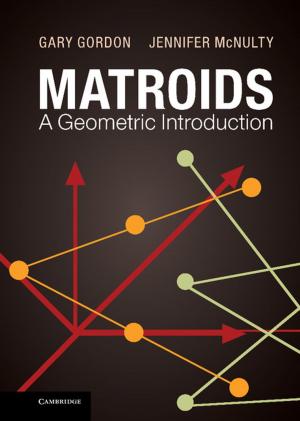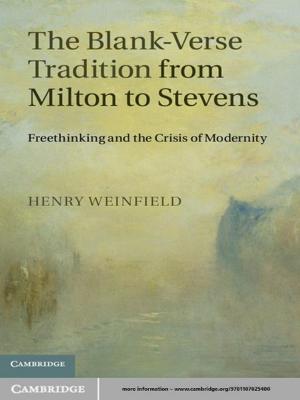The Soul of Nietzsche's Beyond Good and Evil
Nonfiction, Religion & Spirituality, Philosophy, Modern, Social & Cultural Studies, Social Science| Author: | Maudemarie Clark, David Dudrick | ISBN: | 9781139539593 |
| Publisher: | Cambridge University Press | Publication: | July 9, 2012 |
| Imprint: | Cambridge University Press | Language: | English |
| Author: | Maudemarie Clark, David Dudrick |
| ISBN: | 9781139539593 |
| Publisher: | Cambridge University Press |
| Publication: | July 9, 2012 |
| Imprint: | Cambridge University Press |
| Language: | English |
This book presents a provocative new interpretation of Beyond Good and Evil, arguably Nietzsche's most important work. The problem is that it appears to express merely a loosely connected set of often questionable opinions. Can Nietzsche really be an important philosopher if this is his most important book? Maudemarie Clark and David Dudrick address this question with a close reading that emphasizes how Nietzsche writes. They argue that the first part of Beyond Good and Evil presents coherent and interconnected arguments for subtle and well-thought-out positions on traditional issues. Nietzsche's infamous doctrine of the will to power turns out to be a compelling account of the structure and origin of the human soul. And although he rejects some aspects of traditional philosophy, Nietzsche's aim is to show how philosophy's traditional aspirations to seek both the true and the good can be fulfilled. Beyond Good and Evil turns out to be a major work of philosophy and Nietzsche's masterpiece.
This book presents a provocative new interpretation of Beyond Good and Evil, arguably Nietzsche's most important work. The problem is that it appears to express merely a loosely connected set of often questionable opinions. Can Nietzsche really be an important philosopher if this is his most important book? Maudemarie Clark and David Dudrick address this question with a close reading that emphasizes how Nietzsche writes. They argue that the first part of Beyond Good and Evil presents coherent and interconnected arguments for subtle and well-thought-out positions on traditional issues. Nietzsche's infamous doctrine of the will to power turns out to be a compelling account of the structure and origin of the human soul. And although he rejects some aspects of traditional philosophy, Nietzsche's aim is to show how philosophy's traditional aspirations to seek both the true and the good can be fulfilled. Beyond Good and Evil turns out to be a major work of philosophy and Nietzsche's masterpiece.















